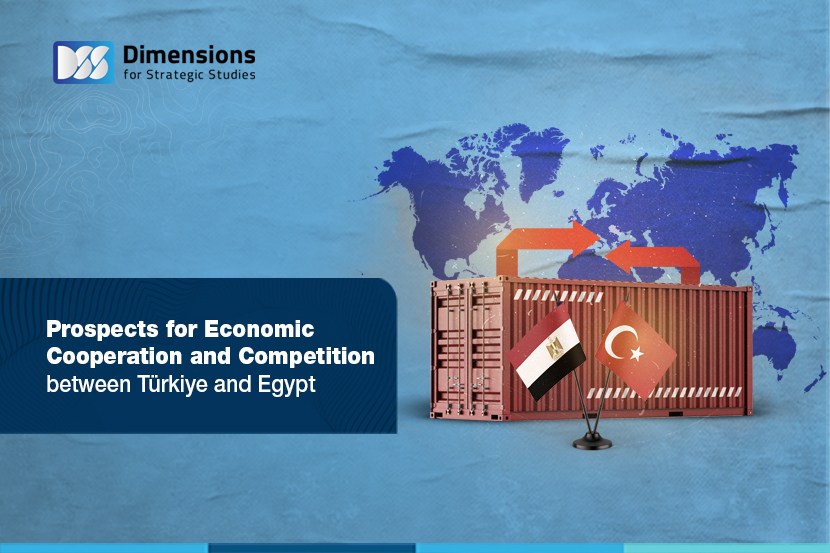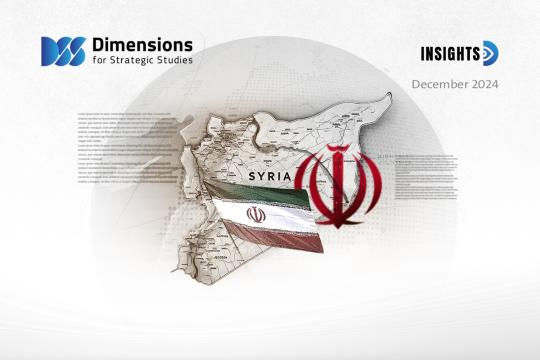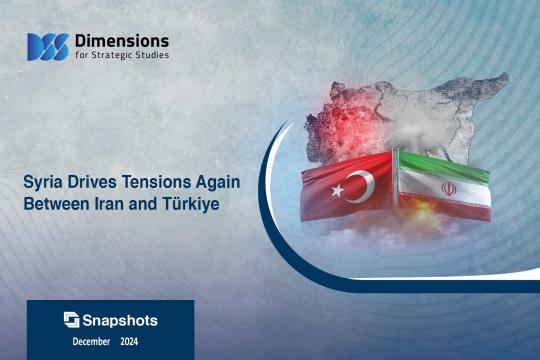
Prospects for Economic Cooperation and Competition between Türkiye and Egypt
2024-05-083281 view
Introduction
Türkiye and Egypt have many common characteristics. They are relatively close geographically. Each has a waterway of vital importance to the world economy. Their political systems were very similar when they were established as modern states, dominated for many years by their respective militaries. Egyptians and Turks have a common cultural history, based on their religion and the fact that both were vital parts of the Ottoman Empire.
Yet none of this has led the two countries to enjoy the economic or political relations these shared characteristics might suggest. Rather, their commonalities were transformed into points of difference, which each party has exploited to win points across the region.
Egypt was the heart of Arab nationalism, especially during the 1960s, while modern Türkiye’s outlook has been dominated by Turkish nationalism. For Arabs, Türkiye became the Other who had occupied their lands and deprived them of development and progress, while for Türkiye, the Arabs were the Other who had helped weaken their influence across the region.
Egypt and Türkiye have had minimal economic relations throughout their modern history, although this has undergone transformations during political crises such as the Arab Spring. As the two governments have sought political reconciliation since 2021, economic issues have become key axes in settling disputes. This is especially true as Egypt has aligned itself with countries seeking to block Türkiye’s ambitions to drill for gas in the Mediterranean. Progress on political files has thus become dependent on finding solutions to economic issues. Therefore, it is possible to point to some improvements in their relations—but within limits, set by the competitiveness of the countries’ respective economic models and political conditions in the region more generally.
This report analyzes Türkiye and Egypt’s economic models and the points of cooperation and competition between them, in order to map out the prospect of bilateral cooperation—and its limits.
Conclusion
Türkiye’s Gross Domestic Product amounts to more than $800 billion, while Egypt’s reaches only half that figure. Both economies have huge markets in terms of distribution and production capacity, but Egypt has far smaller industrial and export potential due to the immaturity of the Egyptian economic model. Türkiye has made many strides to surpass Egypt in terms of manufacturing and exports, and the Turkish economic model is both more mature and easier to understand.
Due to the form of their respective economic models, there are more points of competition and dissonance between them than areas of cooperation and convergence. While the possibility for cooperation undoubtedly exists, they are likely to develop their bilateral economic ties cautiously, and that process could easily be stopped or reversed.
With political factors on top of cultural and economic ones, Turkish-Egyptian economic relations face huge challenges, which cannot be addressed simply through bilateral visits or declarations of intent.
Egypt and Türkiye are witnessing a development in their economic relations that may continue for several years, but it may be likened to bringing together two magnets with the same charge, which converge easily when they are at a distance, but the closer they get, the harder convergence becomes.
The two economies compete on issues of economics of location and production costs. Egypt excels in terms of low energy and labor costs, while Türkiye is more efficient in bringing products to market and better at demonstrating their quality.
The two are most likely to compete on in the agricultural, textile, and steel sectors, while they could cooperate on joint production in Egypt and neighboring markets. However, the issues over which they differ sharply—the ability to attract foreign investors, and Mediterranean gas reserves—are likely to remain points of contention.
Egypt and Türkiye each have unique economic models with special characteristics. As things stand, there is a large gap between them. Paradoxically, rapprochement between them could expose deeper differences, something that will pose obstacles to building any deep strategic partnership.
Report in Arabic here: (Click here)





